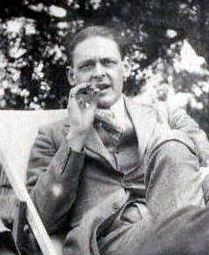The Enigma of J. Paul Getty, the One-Time Richest Man in the World

when david scarpa heard that a producer wanted to make a film about the 1973 kidnapping of john paul getty iii, the oil tycoon’s teenage grandson and namesake, the screenwriter wasn’t sure there would be enough content for a feature film.
“I said, ‘Well, you’ve got the whole ear thing, but you can’t base an entire movie on that,’” Scarpa told Vanity Fair, recalling the grisly and most remembered detail of the kidnapping: how the Italian captors cut the teen’s ear while being held hostage.
it was only after scarpa learned that j. Paul Getty was the richest man in the world at the time, with an approximate fortune of $2 billion, and yet he still refused to pay his grandson’s ransom of $17 million, so the screenwriter took an interest and wrote the script that became that of ridley scott . the money of the world, which opens on christmas day.
“It became a story about money and the power that money has over people in my mind,” Scarpa said. “and not just the power that money has over the poor or ordinary people, but the power that money has over the people you think would be most free of it.”
In 1973, the five-time divorcee Getty (played in the film by Christopher Plummer, who replaced Kevin Spacey in a highly publicized actor-swapping story) spent most of his time at his sixteenth-century manor house, sutton place, england, isolated from the four children he rotated in and out of his will as he saw fit. he was driven to amass his fortune by a deep-seated desire to disprove his late father, who he hoped would destroy the family business. Yet as Getty’s bank account grew, so did his obsession and his paranoia. By the time his granddaughter was kidnapped, Getty had hired his own security team, stationed Alsatian dogs around his property, and installed a coin-operated payphone in the mansion for guest use. p>
“This was in the context of the 1973 oil crisis, when the price of oil skyrocketed to the point where Getty’s daily earnings would have been enough to pay the ransom,” Scarpa said. “However, the richer he got, the more dependent he became on money, like an addict. this idea that that lingering insecurity never really goes away seemed like an interesting starting point for a kind of Shakespearean drama.”
Getty’s relationship with his fortune was tested, in extreme circumstances, when the Italian kidnappers demanded $17 million in exchange for the safe return of his grandson Paul. John Pearson’s 1995 book Painfully Rich: The Scandalous Fortunes and Misfortunes of the Heirs of J. Paul Getty, on whom Scott’s film is based, details the tycoon’s fragile family ties at this time in his life. Getty would not speak to his son and Paul’s father, John Paul Getty Jr., who had squandered his own business opportunities, had divorced Paul’s mother, Gail (played by michelle williams), and was in and out of drug addiction. The older Getty disapproved of the bohemian lifestyle of his teenage granddaughter, who had become a minor celebrity in Rome because of his last name, and suspected the kidnapping was a hoax Paul had concocted to extort money from him. Although Getty did not return desperate phone calls from Paul’s mother, he spoke to the press and explained why he would not pay the ransom: “I have 14 grandchildren, and if I pay one cent of the ransom, I will have 14 kidnapped grandchildren. .”
“the royal getty was almost a caricature of wealth and greed, in the sense that you think of mr. simpsons burns,” scarpa said. “So, dramatically, the real challenge was how to present this guy as a more complex individual than that. how do you make the audience sympathize with this guy? or at least get a sense of pathos about him?”



